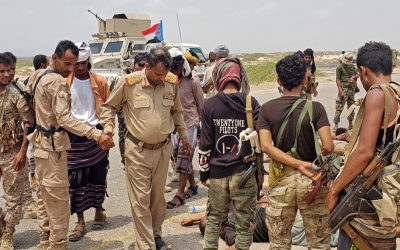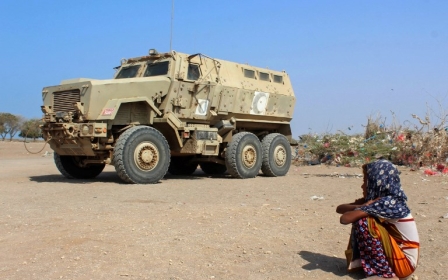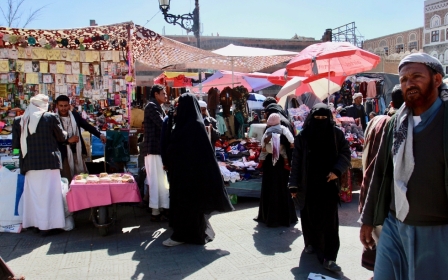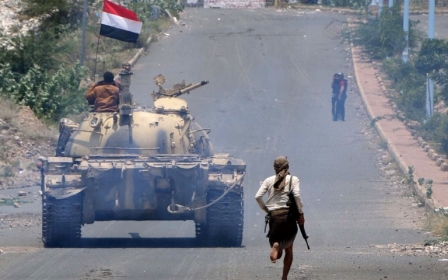US: Blinken reaffirms call for extension of Yemen truce
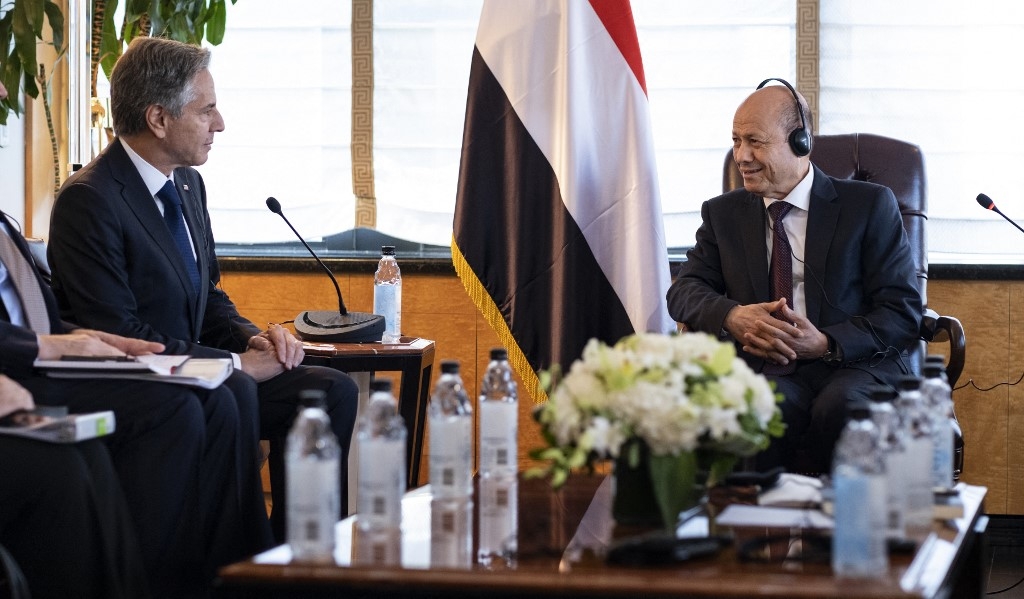
US Secretary of State Antony Blinken is reaffirming his call for an extension of the Yemen truce, after meeting with Rashad al-Alimi, chairman of the Yemeni Presidential Leadership Council (PLC) on Monday.
Blinken and Alimi met in New York, ahead of the United Nations General Assembly, where they discussed “the urgency” of extending and expanding the UN-mediated truce by 2 October, when it is set to expire.
"I think it's fair to say that the truce, whose effects are being felt throughout Yemen, has made a profound difference in improving people's lives,” Blinken said, “and your own leadership in working to sustain that truce has made a huge difference.”
The leaders also affirmed their support for additional steps under the truce, including opening roads in Taiz and other areas, expanding commercial flights from Sanaa airport, and ensuring salary payments to teachers, nurses and other civil servants who have been working without pay.
“They expressed their hope that the Houthis will also support such important steps to bring relief to Yemenis,” the State Department statement said.
“Secretary Blinken noted the truce remains the best opportunity through which to reach a nationwide, permanent ceasefire and the launch of an inclusive, comprehensive political process under UN auspices that includes Yemenis’ calls for justice, accountability, and redress for human rights violations and abuses.”
The Yemen truce was first announced in April and was extended for two months in June, and again in August. It has brought much-needed respite from fighting that, according to the United Nations, was likely to have claimed the lives of 377,000 people by the end of 2021.
According to the United Nations, more than two-thirds of Yemen's 30 million people rely on humanitarian aid to survive. The truce led to a 60 percent drop in civilian casualties, with most now occurring as a result of landmines and unexploded ordnance, the UN has said.
The number of displaced people has been reduced by half. International flights have resumed in a limited capacity from Sanaa and fuel shipments to the Houthi-controlled port of Hodeidah have increased.
But, on Monday, the Executive Mine Action Center in Sanaa confirmed the death of 108 citizens and the injury of 216, as a result of mines, cluster bombs and other remnants of war, since the start of the truce. The Center called for supplies to clear areas of mines and cluster bombs.
Yemen descended into civil war in 2014, when Iran-aligned Houthis seized the capital, Sanaa, forcing the internationally recognised government to flee to Saudi Arabia. Riyadh and a coalition of regional allies, chiefly the UAE, intervened in March 2015 to push the Houthis back.
Seven years of fighting has failed to dislodge the Houthis, who control northern Yemen and about 80 percent of the country’s population, along with major urban centres.
The April truce came after some of the most bitter fighting, as the Houthis attempted to take the strategic city of Marib. The coalition held them off and reorganised its forces to go on the offensive in Shabwah, where it dealt the Houthis a rare defeat.
Middle East Eye delivers independent and unrivalled coverage and analysis of the Middle East, North Africa and beyond. To learn more about republishing this content and the associated fees, please fill out this form. More about MEE can be found here.


